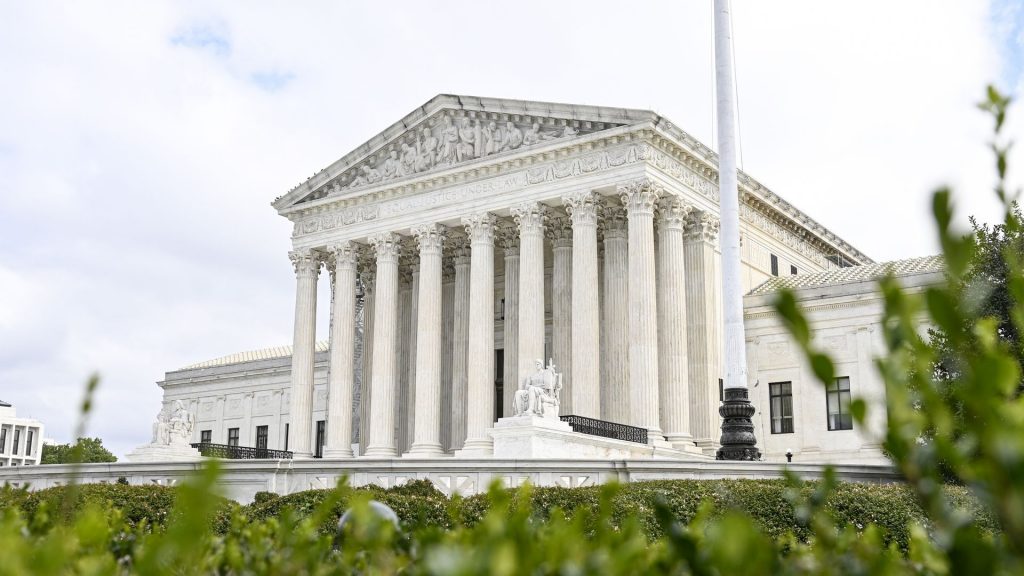Supreme Court upholds Tennessee’s ban on gender-affirming care for minors

The Supreme Court ruled Tennessee’s law that bans gender-affirming care for minors does not violate the 14th Amendment’s Equal Protection Clause. The 6-3 decision in United States v. Skrmetti means Tennessee can continue to restrict minors from using puberty blockers and hormone therapy in order to identify as a gender that is different from their sex at birth.
“This case carries with it the weight of fierce scientific and policy debates about the safety, efficacy, and propriety of medical treatments in an evolving field. The Equal Protection Clause does not resolve these disagreements,” Chief Justice John Roberts wrote for the majority.
How did SCOTUS rule?
The court ruled there is no discrimination based on sex because the prohibition is based on use.
“SB1 prohibits healthcare providers from administering puberty blockers and hormones to minors for certain medical uses, regardless of a minor’s sex,” Roberts added.
Chief Justice Roberts joined conservative Justices Thomas, Alito, Gorsuch, Kavanaugh, and Barrett in the decision. Justices Sotomayor, Kagan and Jackson dissented.
The minority said the law does discriminate on the basis of sex and therefore should have been subject to a higher level of scrutiny. Justice Sonia Sotomayor argued that Tennessee must prove it is advancing a legitimate government interest and doing so through means substantially related to that interest. Legal scholars refer to that standard of review as intermediate scrutiny.
The majority applied a lower standard, a rational basis review, which requires the state only to prove a rational connection between the statute and its goal.
“The Court … does irrevocable damage to the Equal Protection Clause and invites legislatures to engage in discrimination by hiding blatant sex classifications in plain sight,” Sotomayor wrote. “It also authorizes, without second thought, untold harm to transgender children and the parents and families who love them. Because there is no constitutional justification for that result, I dissent.”
What does Tennessee’s law do?
Tennessee lawmakers passed SB1 in 2023, stating, “These procedures can lead to the minor becoming irreversibly sterile, having increased risk of disease and illness, or suffering from adverse and sometimes fatal psychological consequences.”
The law does allow minors to receive the same treatments for other reasons. One example cited involves using puberty blockers to treat children experiencing early puberty.
During oral arguments in December, attorneys for Tennessee stated the law focuses on the medical purpose of the treatment, not sex, and is therefore not sex discrimination.
“Just as using morphine to manage pain differs from using it to assist suicide, using hormones and puberty blockers to address a physical condition is far different from using it to address psychological distress associated with one’s body,” James Mathew Rice from the Tennessee attorney general’s office told the justices.
The law was challenged by the ACLU and the Biden Administration.
“It doesn’t matter what parents decide is best for their children, it doesn’t matter what patients would choose for themselves, and it doesn’t matter if doctors believe this treatment is essential for individual patients,” then-U.S. Solicitor General Elizabeth Prelogar told the justices.
Roberts wrote in his opinion that it wasn’t the court’s place to address some of those issues.
“The Court’s role is not ‘to judge the wisdom, fairness, or logic’ of SB1 … but only to ensure that the law does not violate equal protection guarantees. It does not,” Roberts wrote. “Questions regarding the law’s policy are thus appropriately left to the people, their elected representatives, and the democratic process.”
This decision will impact transgender care nationwide because there are similar laws in 23 other states.





